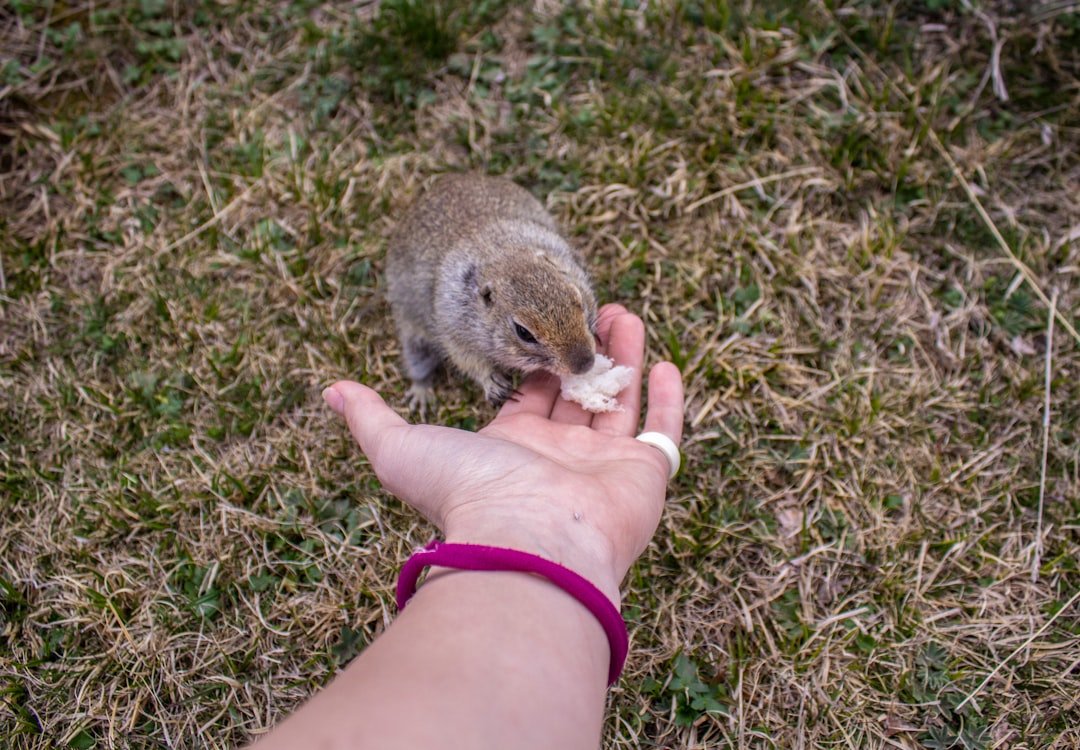Are you curious about the remarkable differences in the life span for specific dog breeds? From Chihuahuas known for their exceptional longevity to Great Danes with shorter life expectancies, understanding the factors that shape a dog's length of companionship can lead to informed decisions that enhance their well-being. Let's embark on a journey through the world of canine longevity and explore how breed-specific considerations play a vital role in fostering lasting relationships with our beloved four-legged friends.
Longest-Living Dog Breeds
Breeds Known for Exceptional Longevity
When it comes to the life span for specific dog breeds, certain breeds stand out for their extended years of companionship. These breeds often surpass the average life expectancy for dogs and bring joy to their owners for longer periods. Some of the longest-living dog breeds include:
-
Chihuahua: Known for living up to 18 years or more.
-
Dachshund: With a life span of around 12-16 years.
-
Australian Cattle Dog: Often reaching 12-15 years of age.
Factors Contributing to Longevity
The longevity of these breeds can be attributed to various factors, such as:
-
Size: Smaller breeds like Chihuahuas tend to live longer than larger breeds due to slower aging.
-
Genetics: Some breeds have genetic predispositions to longevity.
-
Nutrition: High-quality diets can significantly impact a dog's life span.
-
Lifestyle: Regular exercise and mental stimulation play a role in promoting longevity.
When considering a dog breed for their potential life span, these factors should be taken into account to ensure a long and healthy companionship. If you're interested in learning more about the care of Chihuahuas for their long life span, you can refer to Chihuahua Care Tips from a reputable source.
Breeds with Shorter Life Spans
Understanding Breeds Prone to Shorter Life Expectancy
When exploring the life span for specific dog breeds, it's essential to acknowledge breeds that typically have shorter life spans than others. These breeds may face certain health challenges that impact their longevity. Some dog breeds known for shorter life spans include:
-
Great Dane: Despite their large size, Great Danes are prone to shorter life spans of around 7-10 years.
-
Bulldog: Bulldogs have an average life expectancy of 8-10 years due to respiratory and joint issues.
-
Saint Bernard: Known for a life span of 8-10 years, impacted by health issues like hip dysplasia.
Factors Influencing Shorter Life Spans
Several factors contribute to the shorter life spans of these breeds, including:
-
Genetic Predispositions: Some breeds are genetically predisposed to specific health conditions that can shorten their life span.
-
Health Issues: Breeds prone to common health problems may have reduced longevity.
-
Size and Structure: Larger breeds may face challenges related to their size, affecting their life expectancy.
-
Environmental Factors: Climate, living conditions, and access to healthcare can influence a dog breed's life span.
Understanding the factors that can impact the life span of specific dog breeds is crucial for providing appropriate care and ensuring a fulfilling life for your canine companion. If you're interested in learning more about managing the health of Bulldogs for their shorter life span, you can refer to Bulldog Health Care Tips from a reputable source.
Factors Affecting Dog Breeds Life Span
Genetic Predispositions in Specific Dog Breeds
The life span for specific dog breeds can often be influenced by genetic factors. Different breeds may have inherent predispositions to certain health conditions that can impact their longevity. Understanding these genetic aspects is crucial for providing appropriate care and early intervention when necessary.
Environmental Influences on Life Expectancy
Beyond genetics, the environment in which a dog lives plays a significant role in determining its life span. Environmental factors such as diet, exercise, living conditions, and exposure to toxins can all affect a dog's overall health and longevity. Providing a safe and nurturing environment is essential for ensuring a dog's well-being and extending its life span.
Importance of Proper Nutrition and Healthcare
Proper nutrition and healthcare are fundamental pillars in promoting a longer life span for specific dog breeds. A balanced diet tailored to a breed's needs, regular veterinary check-ups, vaccinations, and preventive care are essential aspects of maintaining a dog's health and extending its life expectancy. Ensuring that a dog receives adequate nutrition and medical attention can significantly impact its overall well-being and longevity.
When considering the life span of specific dog breeds, it's crucial to take into account both genetic predispositions and environmental influences, while also prioritizing proper nutrition and healthcare for your canine companion. If you're interested in learning more about the role of nutrition in extending a dog's life span, you can refer to Nutrition Tips for Longevity from a reputable source.
Understanding Breed-Specific Health Concerns
Common Health Issues Affecting Different Dog Breeds
When exploring the life span for specific dog breeds, it's essential to be aware of common health issues that may affect certain breeds more than others. Each breed is predisposed to particular health conditions based on its genetic makeup and physical characteristics. Understanding these breed-specific health concerns can help owners be proactive in addressing potential issues and ensuring their dog's well-being.
Addressing Health Concerns to Impact Life Span
Proactively managing and addressing breed-specific health concerns can significantly impact a dog's life span. Regular veterinary check-ups, early detection of health problems, proper treatment, and preventive care are essential in maintaining a dog's overall health and longevity. By staying informed about the potential health issues in specific breeds and taking appropriate actions, owners can enhance their pet's quality of life and extend their time together.
How Care and Attention Can Influence Longevity
The level of care and attention given to a dog greatly influences its life span. Providing a nurturing environment, proper nutrition, regular exercise, mental stimulation, and affection all contribute to a dog's overall well-being and longevity. By actively addressing breed-specific health concerns and prioritizing the care of your canine companion, you can positively impact their life span and enjoy a happy and healthy partnership for years to come.
For more in-depth information on managing breed-specific health concerns and promoting longevity in your dog, you can refer to Canine Health Resources from a reputable source.
Promoting a Longer Life for Your Dog
Tips for Extending Life Expectancy
Ensuring a longer life span for specific dog breeds involves proactive measures on the part of dog owners. By following these tips, you can enhance your dog's quality of life and potentially extend their years of companionship:
-
Healthy Diet: Provide a balanced and nutritious diet tailored to your dog's breed and age.
-
Regular Exercise: Engage your dog in daily physical activity to maintain their fitness and mental well-being.
-
Routine Veterinary Care: Schedule regular check-ups with a veterinarian to address any health concerns promptly.
-
Mental Stimulation: Keep your dog mentally stimulated through interactive play, training, and puzzles.
-
Affection and Attention: Show your dog love and attention to strengthen the bond and promote emotional well-being.
The Role of Quality of Life in Longevity
A dog's quality of life significantly influences its overall health and life span. By prioritizing aspects such as proper nutrition, exercise, mental stimulation, veterinary care, and emotional well-being, you can create an environment where your dog thrives and enjoys a longer and healthier life.
Importance of Tailoring Care to Breed-Specific Needs
Understanding the unique characteristics and requirements of your dog's breed is essential in providing tailored care that enhances their longevity. By considering breed-specific health concerns, genetic predispositions, and lifestyle preferences, you can better meet your dog's individual needs and promote a fulfilling and extended life span.
For further guidance on promoting a longer life for your dog and addressing breed-specific care considerations, you can refer to Pet Care Resources from a reputable source.
Choosing the Right Dog Breed for Longevity
Factors to Consider When Selecting a Dog Breed
When it comes to the life span for specific dog breeds, choosing the right breed can make a significant difference in the longevity and quality of life of your pet. Consider the following factors when selecting a dog breed based on life expectancy:
-
Size and Life Span: Smaller breeds generally live longer than larger breeds.
-
Genetic Predispositions: Research breed-specific health issues and genetic predispositions.
-
Activity Level: Match the breed's energy level with your lifestyle for a harmonious match.
-
Maintenance Needs: Consider grooming requirements, exercise needs, and overall care demands.
-
Temperament: Ensure the breed's temperament aligns with your preferences and living situation.
Matching Your Lifestyle with a Breed's Life Span
It's essential to choose a dog breed that not only fits your lifestyle but also has a life expectancy that suits your long-term commitment. By considering the breed-specific factors that influence life span and aligning them with your preferences and capabilities, you can make an informed decision that benefits both you and your future canine companion.
Ensuring a Long and Happy Partnership
Selecting a dog breed with a suitable life span is the first step in ensuring a long and happy partnership. By understanding the various factors that impact a breed's longevity and making an informed choice, you can set the foundation for a fulfilling relationship that lasts for years to come.
For additional guidance on choosing the right dog breed for longevity and considering life span factors, you can refer to Pet Adoption Resources from a reputable source.
Summary: The Ultimate Guide to Life Span for Specific Dog Breeds
Enhancing Your Understanding of Canine Longevity
In this comprehensive guide, we delved into the diverse factors that influence the life span for specific dog breeds. By exploring the longest-living and shortest-living breeds, understanding genetic predispositions, and considering environmental influences, you can make informed decisions to promote a longer and healthier life for your furry companion.
Empowering Owners to Extend their Dog's Life Span
Through discussions on breed-specific health concerns, the importance of proper nutrition and healthcare, and tips for promoting longevity, owners are equipped with valuable insights to safeguard their dog's well-being. By tailoring care to breed-specific needs and providing a nurturing environment, you can enhance your dog's quality of life and potentially extend their years of companionship.
Making Informed Choices for a Happy Partnership
Choosing the right dog breed for longevity is a pivotal decision that sets the stage for a fulfilling and enduring partnership. By considering factors such as size, genetic predispositions, activity level, and temperament, you can select a breed that aligns with your lifestyle and ensures a harmonious and long-lasting bond with your canine companion.
For further resources and information on maximizing the life span for specific dog breeds, continue to explore reputable sources and consult with professionals who can guide you in providing the best possible care for your beloved pet.
FAQ Section
Can a dog's size impact its life span?
Yes, a dog's size can influence its life span. Generally, smaller dog breeds tend to live longer than larger breeds. Larger breeds often have shorter life expectancies due to factors such as faster aging and a higher likelihood of certain health issues.
How can genetics affect a dog breed's life span?
Genetics play a significant role in determining a dog breed's life span. Some breeds may be genetically predisposed to specific health conditions that can impact their longevity. Understanding a breed's genetic predispositions can help owners be proactive in addressing potential health concerns.
What role does nutrition play in extending a dog's life span?
Proper nutrition is crucial in extending a dog's life span. A balanced and nutritious diet tailored to a dog's breed and age can significantly impact their overall health and well-being. Quality nutrition supports immune function, energy levels, and overall longevity.
Why is regular veterinary care essential for a dog's longevity?
Regular veterinary care is vital for maintaining a dog's health and extending their life span. Routine check-ups allow for early detection of health issues, preventive care, vaccinations, and overall monitoring of a dog's well-being. Timely interventions and treatments can help address potential health concerns and promote longevity.
How can owners promote mental stimulation for their dogs and enhance their life span?
Mental stimulation is crucial for a dog's overall well-being and life span. Engaging activities such as interactive play, training sessions, puzzle toys, and regular exercise can keep a dog's mind active and prevent boredom. Mental stimulation contributes to a dog's emotional health and can lead to a longer and happier life.


